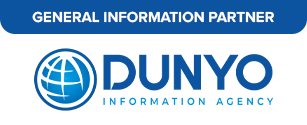News
The Central Bank linked restrictions in neighboring countries to the rise in meat prices in Uzbekistan
In March, meat prices in Uzbekistan rose by 6.1% over the month and by 21.6% over the year. The Central Bank attributed this to a reduced supply due to export restrictions in neighboring countries and an increase in import prices. Kazakhstan and Kyrgyzstan had previously limited livestock exports, while meat imports surged at a record pace.A sharp rise in meat prices was recorded in Uzbekistan in March — a 6.1% increase compared to the previous month. On an annual basis, meat prices rose by 21.6%, according to the Central Bank’s monetary policy report.
"The reduced meat supply resulting from export restrictions in neighboring countries, as well as rising import prices, led to higher domestic prices," the regulator noted.
The increase in meat prices became one of the drivers of accelerating core food inflation. According to the Central Bank, core food inflation rose by 1.4 percentage points compared to December.
Prices for vegetable oils also increased, which the Central Bank linked to high global market prices. While in 2024 deflation in the fruit and vegetable market held back overall price growth, the trend is expected to reverse in 2025, with fruit and vegetable products possibly driving inflation upward.
Against the backdrop of rising meat prices, Kazakhstan previously restricted the export of breeding cattle and sheep for six months. The ban was in effect from September 14, 2024, to March 14, 2025, and was extended for another six months starting April 9.
However, Kazakh livestock breeders complained that the export ban limited their ability to profit from foreign sales. One of their key markets is Uzbekistan, where most exports consisted of live animals.
Kyrgyzstan also temporarily banned meat exports last year, citing Uzbekistan as the reason. The country linked the sharp rise in domestic meat prices to increased exports to Uzbekistan.
As of January 31, Kyrgyzstan temporarily halted the export of cattle, sheep, and horses to third countries. On January 29, MP Janar Akaev stated that 15,000 to 20,000 heads of cattle were being exported to Uzbekistan weekly, and that veterinary service employees were allegedly collecting 100 soms (nearly 15,000 Uzbek soums) per animal, supposedly for the agency head. He requested the State Committee for National Security to investigate.
Later, the Veterinary Service called the MP’s statement unfounded and inaccurate. An internal investigation into his claim has been launched.
Meat Imports Soaring at Record Levels
According to the Customs Committee, in the first four months of the year, Uzbekistan increased its meat imports to $197.1 million — a 66.3% rise compared to the same period last year.
Most imports were beef — $156.2 million (+86.8%). In volume terms, beef imports rose by 78.8%, from 21.5 thousand to 38.7 thousand tons.
Chicken imports also rose by 24.8% to 18 thousand tons, amounting to $22 million (+33.6%).
Mutton imports increased 2.8 times to 6,333 tons, with a total value of $6.5 million (+1%).
In April alone, Uzbekistan imported $58.9 million worth of meat. Of this, $47.7 million was for beef — a new record. In March, beef imports were valued at $40.2 million. Compared to April last year, beef imports nearly doubled (1.91x).
The average price of imported beef was $4.06 per kg (last year — $3.93).
Chicken and mutton imports continued to rise — by 1.27 times and 1.29 times, respectively.
The average price of chicken remained unchanged at around $1.1 per kg. Meanwhile, the average price of imported mutton unexpectedly dropped from $2.76 to $0.73.
According to official statistics, meat production in Uzbekistan increased by 3.6% in the first quarter of the year, reaching 564.1 thousand tons.
The Ministry of Agriculture of Uzbekistan previously stated that rising costs for feed, electricity, and fuel were key drivers behind higher meat production costs.
Uzbekistan Among the Most Expensive CIS Countries for Meat
According to the international service Numbeo, as of May 22 this year, the price of one kilogram of beef in Uzbekistan is $8.33 (approximately 107,000 soums). In neighboring countries, prices are lower: in Kazakhstan — $7.31, in Kyrgyzstan — $7.84, and in Tajikistan — $7.78.
In Armenia, beef costs an average of $12.08 per kg, in Russia — $9.97, in Azerbaijan — $9.89, in Moldova — $8.48, and in Ukraine — $6.76.
The top five countries with the highest beef prices are Switzerland, Iceland, South Korea, Norway, and Luxembourg. Switzerland leads the ranking with a price of $48.13 per kg. In Iceland, beef costs $41.79; in South Korea — $29.48; in Norway — $29.13; and in Luxembourg — $25.
Source


